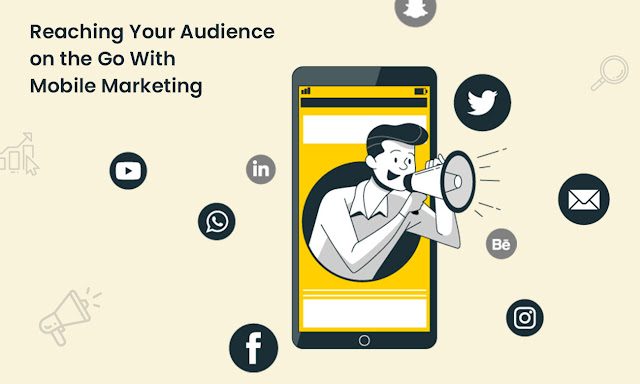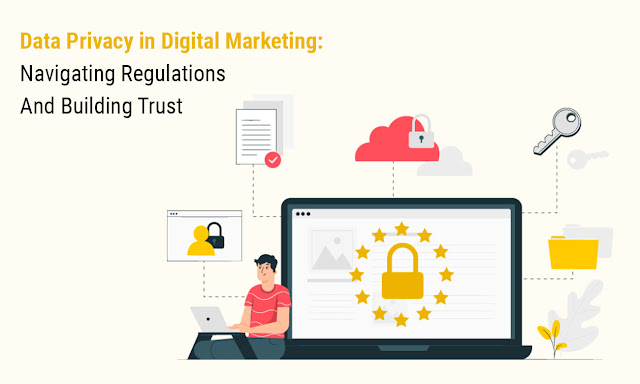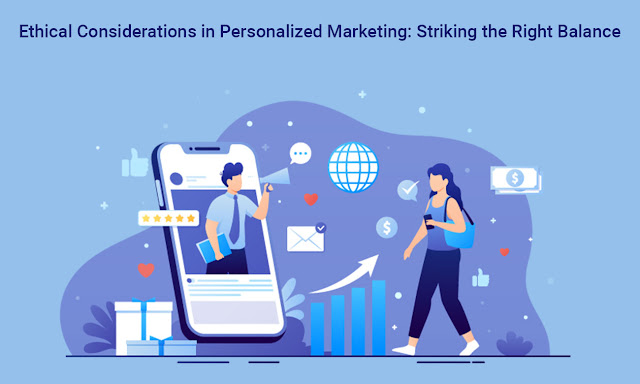Reaching Your Audience On The Go With Mobile Marketing
Businesses are resorting to mobile marketing to interact with their audiences while they are on the road in a world where smartphones have become an extension of themselves. With the use of mobile devices, this innovative technique engages individuals, shapes their actions, and fosters deep connections. Mobile marketing is revolutionizing how organizations communicate with their customers and ushering in a new era of consumer engagement with features like adaptable designs and location-based targeting.
The Essence of Mobile Marketing
Mobile marketing is more than just a strategy; it's a revolution that capitalizes on the ubiquity of mobile devices, from phones to tablets. As technology has seamlessly integrated into our lives, businesses have recognized the need to meet consumers where they are – and that's on their mobile screens. Steve Jobs once referred to computers as extensions of ourselves, and today, smartphones have taken that sentiment to new heights.
The staggering number of mobile device users is a testament to the relevance of mobile marketing. Since the pandemic hit, global mobile traffic has soared by 25%, painting a clear picture of the world's growing reliance on mobile devices. It's projected that within just two years, there will be a staggering 400 million mobile users. If businesses want to thrive in this landscape, they must embrace the mobile marketing revolution.
Advantages of Embracing Mobile Marketing
Mobile Shopping is on the Rise
The penetration of mobile devices has given rise to a surge in mobile shopping. The ease of accessing the internet via smartphones has made it convenient for users to make purchases and conduct business transactions from virtually anywhere. This shift in behavior was anticipated years ago and has proven true, with a 51% increase in mobile internet traffic in recent quarters.
The increasing number of mobile users signifies the importance of aligning your marketing strategy with mobile devices sooner rather than later. Mobile users are ready to engage, and businesses that seize this opportunity stand to gain an edge.
Location-Based Targeting
One of the bottlenecks in traditional marketing has been accurate targeting. Mobile marketing, however, has resolved this issue with the advent of location-based targeting. Mobile phones equipped with GPS capabilities allow businesses to tailor their campaigns to specific geographic regions. This opens the door for small businesses such as local stores, cafes, and restaurants to show their services to users nearby.
Imagine a quaint café sending out a notification to users passing by, tempting them with the aroma of freshly brewed coffee. This level of targeted outreach is a game-changer for businesses looking to maximize their impact.
Embracing App Culture
With the proliferation of smartphones comes a surge in app usage. People are relying on apps to fulfil various needs, from communication to entertainment. This app culture presents a golden opportunity for businesses to tap into ready-made platforms and monetize trends.
Notably, even communication apps like WhatsApp have become avenues for generating revenue. Businesses can integrate their offerings seamlessly into these platforms, ensuring their message reaches users who are already engaged.
Instant Communication
The era of instant gratification has arrived, and mobile marketing aligns perfectly with this trend. The constant connectivity offered by mobile devices has shifted consumer behavior. People are glued to their screens, awaiting notifications that pique their interest. As a business, the ability to communicate in real-time is invaluable.
Traditional communication methods are becoming obsolete in the face of instantaneous interactions. Businesses that invest in swift and responsive communication systems can build trust and cater to customer concerns promptly.
Strategies to Optimize Mobile Marketing
Bluetooth Marketing
Bluetooth marketing, also known as proximity marketing, capitalizes on smartphones' Bluetooth function to share multimedia files with users. This strategy allows businesses to showcase new products, special offers, or compelling messages directly to users' devices. Consider a clothing retailer using Bluetooth marketing to share promotional videos of their latest collection with shoppers as they enter the store.
Message Marketing
SMS marketing, though an older strategy, remains effective. With the proliferation of social networks and messaging apps, text messages may seem outdated. However, they offer direct and personal communication, making them an efficient tool for staying connected with customers. A restaurant can use message marketing to send special offers to its loyal customers, ensuring they stay engaged and informed.
Responsive Web Design
A responsive web design is not just a matter of aesthetics; it's a necessity in the digital age. Users expect a seamless browsing experience regardless of the device they're using. Google even considers responsive design when ranking websites. Businesses that prioritize responsive design not only offer a better user experience but also position themselves for better search engine visibility.
QR Code Marketing
QR codes are making a comeback in mobile marketing. These codes, when scanned by a smartphone camera, direct users to specific web pages. Businesses can use QR codes creatively to enhance customer experiences. For instance, a retail store can place QR codes on product tags, providing customers with instant access to additional product information or reviews.
Best Practices of Mobile Marketing
Enhance User Experience
The user experience should be at the forefront of your mobile marketing strategy. Beyond offering quality products, ensure that your overall service leaves customers satisfied. Responsive design and personalized attention can make a significant impact on user satisfaction. A user-friendly app or website that caters to customers' needs will lead to repeat business and positive feedback.
Respect User Privacy
While mobile apps provide the opportunity for deeper engagement, it's crucial to respect users' privacy. Offer options for users to opt out of messages or notifications, ensuring that your communication remains welcome and non-intrusive. Respecting privacy builds trust and contributes to healthy open rates for your messages.
Highlight Benefits in Messages
Every message you send should emphasize the benefits of your product or service. Users want solutions to their daily problems, and your messages should convey how you can address those pain points. Analyze each message to ensure that it communicates value and resonates with your audience's needs.
Prioritize Honesty
Honesty is paramount in any business relationship. Avoid making promises that you cannot fulfil, as this can erode trust and damage your brand's reputation. Transparency in marketing builds credibility and fosters a loyal customer base.
Leverage Social Networks
Social networks are integral to mobile device usage. Optimize your presence on platforms like Instagram, Facebook, and Twitter to tap into both the entertainment and work aspects of users' lives. Building a strong social media presence can help you stand out in a competitive landscape and reach a wider audience.
Embrace the Mobile Marketing Wave
Mobile marketing is not just a trend; it's a transformative force shaping the way businesses connect with consumers. The prevalence of mobile devices, the rise of location-based targeting, and the allure of apps and instant communication have redefined the marketing landscape. By adopting mobile marketing strategies, businesses can create personalized experiences, build trust, and position themselves as leaders in their industries.
Don't miss the chance to be part of this revolution. In a world where mobile devices are the gateway to consumers' lives, mobile marketing is your key to unlocking a new realm of engagement, influence, and success. The era of on-the-go marketing is here – are you ready to seize it?




Comments
Post a Comment